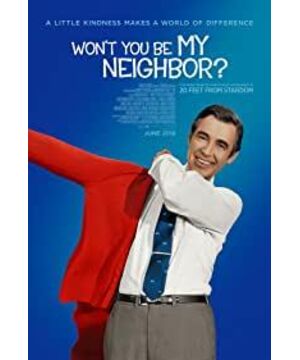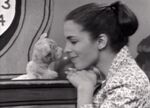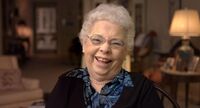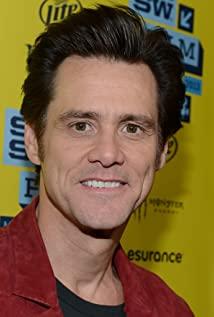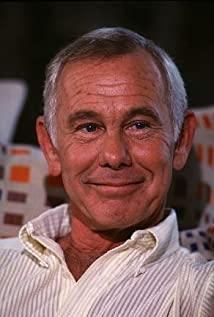Reprinted from the realm, the original text
In 2018, a documentary starring Tom Hanks, "Won't You Be My Neighbor?" received a 99% favorable rating on Rotten Tomatoes. The film's protagonist Fred Rogers (Fred Rogers) is the United States' most famous and influential children's television program "Mr. Rogers' Neighborhood" (Mr. Rogers' Neighborhood) producer and host. He began hosting "Mister Rogers' Neighborhood" in 1968, influencing generations of American children for forty years.
But few people know that the legendary figure known as the "father of children's television" is also a pastor. In the 1950s, when television was a rare, out-and-out new medium, the leaders of his church did not approve of his entry into the new industry of television, which almost killed the future coverage of 10% of American households, a daily A show with an audience of 5 million to 10 million children.
The kids wanted to be with this quiet and somewhat hunchbacked middle-aged man. Rogers used the cutting-edge technology of his day—television—to convey to children the deepest values—compassion, understanding, forgiveness, acceptance. The 2017 rerun of the 886-episode series has attracted more than 1 million views in just a few days.
When Rogers met TV as a luxury
Rogers was born on March 20, 1928, in Latrobe, Pennsylvania. Mother Nancy McFeely Rogers and father James Hillis Rogers were helpful philanthropists whose Christian faith and generosity greatly influenced Rogers' upbringing.
One of Rogers' childhood friends, Ed Yogi Showalter, remembers that Rogers was influenced by his parents even in elementary school. "Rogers reported to his parents that the kids in his class were discussing a younger classmate whose parents couldn't even afford shoes for him. Within a few days, the boy showed up at school wearing brand new high tops." Rogers Going to school with the children of these families, he is proud of his parents' good deeds.
He once said: "The real question in life is not how many blessings we have, but what we do with our blessings. Some people have many blessings and treasure them, and some people have very little and give all of them. given to others."
The Latrobe Presbyterian Church where their family met was dedicated to the construction of their mother, Nancy. As faithful guardians of the community, Rogers' parents write weekly checks to help those in need. Mother Nancy also united several Latrobe churches including Presbyterian, Lutheran, Methodist and Anglican churches to form a network of pastors and volunteers called Fish.
Nancy gathers intelligence from pastors, other volunteers, and even from Rogers' experiences at school. When she learns that a family needs help, she brings that information to "Fish," an organization that makes plans to help them. If money is needed, Nancy can use her own funds to buy clothes, food or medical care.
Rogers suffered from severe childhood asthma, which made his parents very protective and caring for the frail Rogers in every possible way. His mother noticed that he showed a strong interest in music at the age of three or four, and Rogers eventually took up the piano at the age of five.
In 1946, just after World War II, Rogers graduated from high school. Excited by the possibilities that lay before him, he settled on Dartmouth College. His father hoped that he could go back to his hometown to do business with him after graduation. But he told his family he planned to become a Presbyterian minister after college. He planned to attend the highly regarded Western Theological Seminary (later known as Pittsburgh Seminary) nearby.
But over the Easter break of his senior year, Rogers encountered a new thing that was about to change the world and his own life: television. In 1951, television was a novelty luxury, and few American households owned it, let alone who could have predicted that it would change culture in such a drastic way.
At that time, the family bought one of the earliest Latrobe TV sets. Rogers chose to listen to children's programming because of his deep interest in children and education. Shocked and fascinated by television, he quickly grasped, almost instinctively, the extraordinary power of the medium, especially its role in education, even though others at the time were only using it as a distraction.
The New Media Ministry Nearly Killed
While Rogers saw the potential of this new medium foresight, he was also disgusted by the vulgarity of television programming. "I thought, this could be a great educational tool, why not put it to good use? So I said to my parents, I don't think I'm going to seminary right away, I think maybe I'm going to go into TV... Let's see What can be done.” Back at college after the holidays, Rogers revealed to friends that he wanted to do something educational and lighthearted for the kids.
As Rogers changed his plans, there were some tense moments between him and his father. His father, who had accepted him for seminary, was disappointed by Rogers' new ideas. But they still respected him, so Rogers got his wish and entered the television business.
While his career in the media was thriving, Rogers didn't lose sight of his desire to read theology. He was working and studying at the seminary. In 1963, Rogers graduated from seminary with a master's degree.
He felt he was ready to move his pastoral ministry to television, serving children. But to his surprise, the elders of the Pittsburgh Presbyterian Church disagreed. Despite Rogers' experience serving children's Sunday schools, the elders felt he should follow the traditional path: go to church and be a pastor. The local council of elders had the power to decide on similar appointments, and Rogers was stuck.
According to the Rev. Bill Barker, a close friend of Rogers, the leaders of the Pittsburgh Presbyterian Church were very conservative, unimaginative, and did not see the potential of Rogers' ideas.
Eventually Pastor Bill Barker was invited to a meeting of elders, and he emotionally pleaded with church leaders to allow Rogers to preach to children. He said: "Here's a man who stands proudly preaching in front of a TV camera. Thousands of children have come together, and his congregation is young children from two or three to seven or eight years old. It's a real Those who are called by God are like all of you here."
The elders relented and reluctantly agreed with Rogers' vision of trying to build his own Presbyterian ministry through television. At the time, it was an unusual plan for a young pastor to come out of a Presbyterian church anywhere in the United States. Rogers believed he could combine television, education, ministry, puppets, theatre, music and more in a new professional lifestyle to create the most important work he had ever imagined.
He just needs a TV show. As a Presbyterian pastor, he skillfully blended Christian values with what was then a new medium to create a reassuring and engaging community. Through his gentle, slow but textured show, Rogers has taught generations of American parents how important the first few years of life are, when social and emotional learning is more important than cognitive learning. Millions of viewers have grown up holding on to these values and staying true to Rogers' message.
I got into TV because I hated it
Rogers joined the nation's first community-sponsored educational television station, WQED Pittsburgh, in 1953, and began production on "Mister Rogers' Neighbors" in 1966.
Rogers has always believed in showing reality, even the harsh reality, on the screen. In 1970, when he was making a full-length series about death, Rogers turned the camera to the aquarium on set, and he invited the audience to join him in feeding the fish. The camera then focuses on a dead fish at the bottom of the aquarium.
"Oh, what's down there? He asked the children in front of the TV in the camera. Did you see a dead fish? A dead fish could be a fish that was completely breathless or unable to swim." They were shocked, but Rogers calmly began his quest for death, loss, pain, and the meaning of life.
He picked up a small net and carefully reached into the aquarium to fish out the dead fish. He told the children that he had read a story that sometimes if you put a dead fish in salted water, the fish would wake up. He put the fish in a waterproof bag, took a can of salt from the shelf, and sprinkled it in the bag. Nothing happened. "I don't think salt can help us," he said softly. He picked up a tissue and placed the body in a small paper coffin. Then he took out a trowel and carefully dug a small hole next to an evergreen tree, he placed the body in this particular grave and patted the soil.
Rogers didn't tell grieving children that everything would be fine. There is no such simple consolation, instead, he shares his own feelings about death and loss, and a truth repeated throughout the show: life does go on, don't shy away from these seemingly tragic events.
"I got into TV because I hated it so much," he admitted. But after graduating with a theology degree in 1963, he realized that the media would be an excellent tool for developing those willing to watch and listen. Rogers' show is a powerful reminder that Christians have the potential to transform their industry, not simply conform to it.
As Joyce Millman wrote in 1999, on the 30th anniversary of Mister Rogers' Neighborhood, Rogers has resisted commercial promotion, fashion trends and technological flashes...Children's basic needs do not follow change over time. This focus on things beyond time helps the show become timeless.
In the eyes of Brett McCracken, senior editor of Gospel Coalition, as a pastor, Rogers sees children as the goal of his mission and television as his tool. While the government that sponsors the show does not allow Rogers to publicly preach religious messages, Rogers does present many Christian values.
In the documentary "My Neighborhood," audiences are moved by scene after scene, whether it's singing with disabled boys or washing the feet of black people in a racially divided society, the director conveys Rogers' efforts - he uses television This new media approach at the time showed the friendly relationship between neighbors and the love of the neglected like Christ. Rogers uses gentle and attentive listening to shape a sense of honor and love. Now in this age of distractions competing for attention, this emphasis on presence has almost become a lost art.
McQueen said: "In today's fractured world, how can media be used to build bridges instead of walls? That's one of the questions the documentary 'Be My Neighbor' asks in a timely manner. We may never have another A Mr. Rogers, but shouldn't we use the media to mold, glorify, and shape virtue as he did? Christians who want to influence culture with the Gospel should watch this documentary and pay attention to Rogers' approach. He articulates himself meaning, but not preaching."
The greatest thing we can do
For Rogers, every child needs special attention because every child needs to feel confident that they are loved. It's a deep belief that has inspired Rodgers since his childhood. At the beginning of every episode of "Mister Rogers' Neighborhood," he sings, "Would you like to be my neighbor?"
He is serious. Rogers possesses a unique and powerful ability to comfort people, including many whose childhoods are long gone. He has helped generations of children understand their evolving world and their potential within it.
The true bravery that Rogers displayed in the television medium was most clearly demonstrated in that 1981 episode. That episode was about a 10-year-old boy, a quadriplegic, high-IQ Jeff Erlanger who has been in a wheelchair since he was four. The camera focuses on Rogers, who asks Jeff about the mechanics of his wheelchair, in a tone no different from when he asked about Jeff's favorite flavor of ice cream.
As Jeff detailed his physical condition in a calm, measured way, Rogers listened intently, praising Jeff's ability to talk about it in a way that might help others: Your parents must have Proud of you. Rogers said in the film: Love is the root of everything.
"Nothing can replace the impact of unconditional love on a child's life...Children love to belong, they want to belong." Rogers is not blindly optimistic. He doesn't think kids should be blind to life's hardships, from assassinations to terrorism to racism, but he wants to give kids the tools to know they're loved.
In 1968, Kennedy was assassinated. When the huge fear spread across the country, and adults fell into fear and sadness, Rogers paid more attention to the children he loved the most. "I've been worried about the images of violence shown to children in the public media, and I ask you to protect our children, I'm worried that these children will be harder to bear. We can take our children to a picnic, to a walk by the river, or at least Give them a hug."
As mentioned in the documentary, Rogers' theological idea is to "love your neighbor as yourself". He regards every communication with people as the most profound spiritual communication he is doing. "I think everyone wants to be loved and to know that he or she is lovable, so the greatest thing we can do is help others know that they are loved and capable of love."
View more about Won't You Be My Neighbor? reviews


